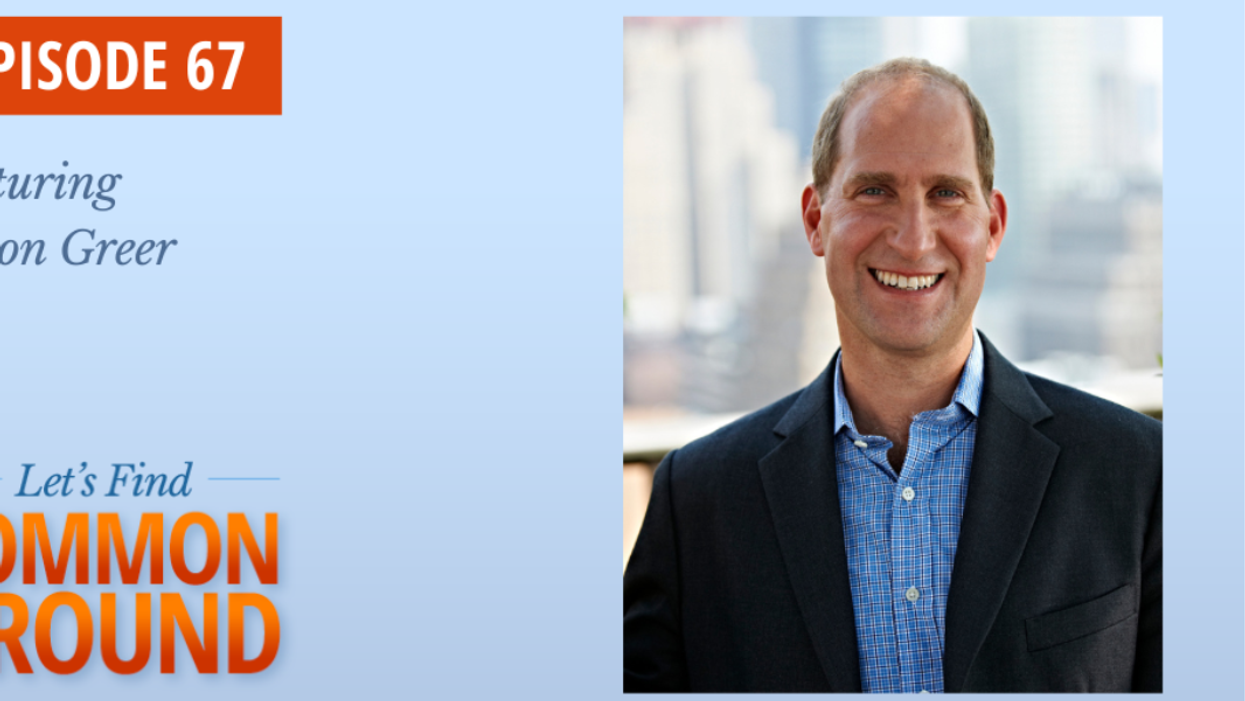Polarization is not just a problem for Congress and our political system, it’s also taking a toll in the workplace. Employees are falling out with each other over politics, Supreme Court decisions, and fiery issues in the culture wars. Colleagues who used to be friendly now barely talk to each other.
Organizations are trying to stem the discord. Some have banned political talk at the office. Others have taken a public stand on an issue of the day in an effort to ‘do the right thing’. But these and other ideas still can end up pleasing some employees and alienating others.
Simon Greer, the guest on this episode of Let’s Find Common Ground, is the founder of Bridging the Gap, a group that helps college students develop the skills to communicate well across differences. He also consults with organizations who face these same challenges among their workforces.
Greer explains how he went from ‘bomb thrower’ to bridge builder over the course of his career, tells stories from his work with employers and employees, and outlines the very personal reason for his belief in the humanity of the other person.




















Marco Rubio is the only adult left in the room